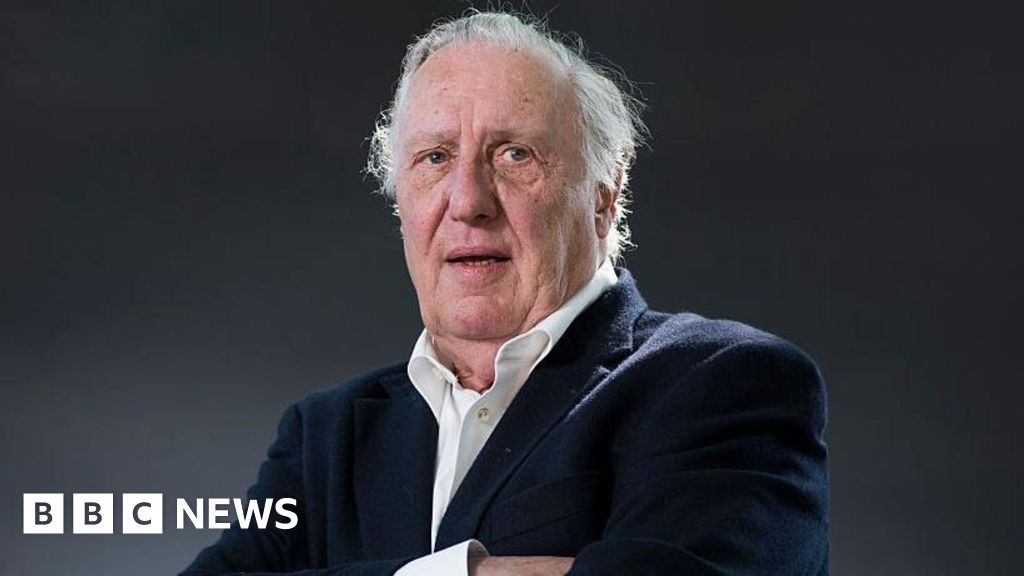ARTICLE AD BOX
Pablo Milanés, a Grammy award winner who was a key member of Cuba's "nuevo trova" (new music) movement, has died aged 79.
Affectionately known as Pablito, he was renowned for his poetic lyrics and emotional vocals on hits like Yolanda, Yo Me Quedo (I’m Staying) and Amo Esta Isla (I Love This Island).
His death was confirmed "with great pain and sadness" on his official Facebook page, external.
Earlier this month, Milanés cancelled several concerts as he sought treatment for blood cancer in Spain.
“The culture in Cuba is in mourning for the death of Pablo Milanes,” Prime Minister Manuel Marrero Cruz tweeted on Monday night.
Pablo Milanés Arias was born in the east Cuban city of Bayamo in 1943, the youngest of five siblings born to working class parents.
His musical talents were apparent from an early age. At the age of six, Milanés started entering, and often winning, singing competitions on local TV and radio stations, and later studied at the Conservatorio Municipal in Havana.
Despite the formal training, he generally credited the bohemian musicians of his local neighbourhood as the inspiration for his early career.
Although he supported the Cuban revolution of 1959, Milanés was initially targeted by Fidel Castro’s government, who clamped down on "alternative" culture.
The musician was reportedly harassed for wearing his hair in an afro, and in 1965 was sent to an agricultural forced-labour camp for his interest in foreign music.
He eventually escaped and denounced the camps. But the experiences did not dampen his fervour for the revolution, and he began to incorporate politics into his music.
Working with musicians such as Silvio Rodríguez and Noel Nicola, and sponsored by Castro's government, he co-founded the nuevo trova movement - which was designed to update traditional Cuban folk music for the modern, post-revolutionary society.
In 1987, the New York Times, external, called Rodriguez and Milanés, who were close collaborators, "as much a symbol of Cuba and its revolution as Fidel Castro and his beard."
“The success of Silvio and Pablo is the success of the Revolution,” Fidel Castro was quoted as saying at a reception honouring the artists in 1984.
In 1970, Milanés wrote the seminal Latin American love song Yolanda - a tribute to his then-partner Yolanda Benet, who had just given birth to daughter Lynn.
An enduring favourite, the song eclipsed even his own fame, the musician said.
"Yolanda has been overwhelming for my career. She has been stronger than me, more unpredictable than me, more persistent than I would have desired.
"Therefore, I believe the creation itself surpasses the artist's intentions."
His other well-known songs included Yo No Te Pido, Los Años Mozos and Cuba Va; and he won multiple Latin Grammy awards, including a lifetime achievement prize in 2015.
Milanés' staunch support of Castro made him a divisive figure, especially amongst Cuban exiles, but he became more critical of the Cuban revolution in his later years.
In 2010, he backed a dissident hunger striker who was demanding the release of political prisoners
And, after widespread protests swept the island in 2021, Milanés signed a document entitled Manifesto of Cuban Civil Society calling for urgent social and economic reforms in Cuba.
"Our country, united, needs to give way to new voices and new ways of thinking, that are demanding new laws and new freedoms," he said as he signed the document.
His last concert took place in Havana in June 2022.

 2 years ago
56
2 years ago
56








 English (US) ·
English (US) ·